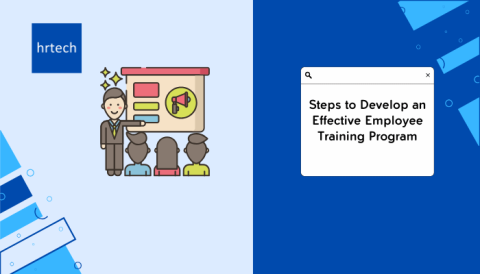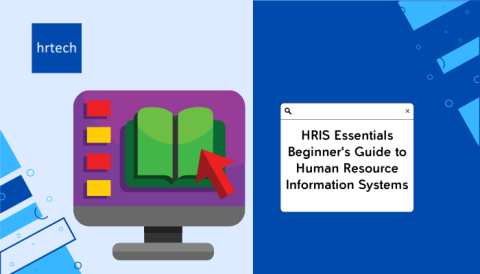In this article, we will discuss the importance of best hr software for startups in startups, the challenges faced by startups without HR software, and the benefits for startups with efficient HR software.
Introduction To Best HR Software For Startups:
HR software is a centralized platform that streamlines HR tasks such as recruitment, employee data management, performance management, payroll processing, and compliance.
HR software provides startups a centralized platform for managing HR functions, reduces administrative tasks, and enhances employee engagement. The benefits of best hr software for startups include improved compliance, increased productivity, and enhanced collaboration.
Importance Of HR software In startups:
Startups face unique challenges when it comes to managing their workforce. Manual tasks can be tedious, time-consuming, and prone to errors. HR software streamlines HR tasks such as recruitment, employee data management, performance management, payroll processing, and compliance. With best hr software for startups, startups can manage their workforce more efficiently, accurately, and transparently.
This, in turn, leads to improved employee engagement, productivity, and better decision-making. HR software sets the foundation for all HR-related processes in a business, ensuring compliance with labor laws and avoiding legal issues in the future. Startups that adopt best hr software for startups early on can gain a competitive advantage, attract top talent, and easily grow their business.
Challenges faced by startups without HR software:
Startups without HR software face challenges such as manual HR tasks that are tedious, time-consuming, and prone to errors. This can lead to compliance issues, legal problems, and decreased employee engagement and productivity. Without best hr software for startups, startups may struggle to attract and retain top talent, which can hinder their growth and success.
Benefits for startups with efficient HR software:
Efficient HR software can provide startups with a centralized platform for managing HR functions, reducing administrative tasks, and enhancing employee engagement. The benefits of best hr software for startups include improved compliance, increased productivity, and enhanced collaboration.
HR software can help startups attract and retain top talent, which can lead to increased growth and success. By streamlining HR tasks, startups can manage their workforce more efficiently, accurately, and transparently, leading to better decision-making and improved employee engagement and productivity.
Understanding ROI in the Context of HR Software:

Explanation of ROI:
Calculating ROI:
The return on investment (ROI) of HR software can be calculated by dividing the benefits generated by the best hr software for startups (e.g., cost savings, improved efficiency, and increased employee engagement) by the cost of the software. This calculation helps organizations justify the purchase and identify areas for improvement.
Factors influencing ROI:
Factors that influence the ROI of best hr software for startups include the cost of the software, the number of employees, the size of the organization, and the specific features and modules used.
Direct correlation between HR software and ROI:
Cost-saving benefits of HR software:
HR software can save startups time and money by automating repetitive tasks, reducing manual errors, and streamlining HR processes. For example, automating the onboarding process can reduce the time investment by 50%.
Increase in productivity and efficiency with HR software:
HR software can improve productivity and efficiency by reducing manual tasks, automating workflows, and providing employee self-service options. This can lead to a 40-60% reduction in time investment for HR staff.
Types of HR Software and their Economic Impact:
Different types of HR software:
HR Management Systems (HRMS): HRMS offers a centralized platform for managing HR functions, including employee data management, payroll processing, and compliance. It provides features such as employee tracking, recruitment, and performance management.
HRIS (Human Resource Information System): HRIS focuses on managing employee data and information, automating repetitive tasks, and providing data analysis support. It helps in compliance management and deepening data analysis.
Recruitment Software: This type of software streamlines the recruitment process, from job posting to candidate onboarding. It can include features such as applicant tracking, interview scheduling, and onboarding automation.
Benefits Administration Software: This software helps in managing employee benefits, such as health insurance, paid leave, and other compensation packages. It ensures compliance with regulations and provides reporting and analytics functionalities.
Economic impact of different types of HR software:
Cost-Benefit Analysis: Each type of best hr software for startups offers specific cost-saving benefits, such as improved benefit monitoring, compliance management, and automation of repetitive tasks. For example, HRMS can save time and money by automating tasks and providing a centralized platform for HR functions.
Choosing the best hr software for startups to maximize ROI: Startups can maximize the economic impact of HR software by choosing the right type that aligns with their specific needs. For instance, investing in recruitment software can lead to cost and time savings in the hiring process, while HRIS can provide extensive data analysis and compliance support.
Challenges Startups Might Face When Implementing HR software:
When implementing HR software, startups may face several challenges, including financial constraints, user adaptation challenges, and integration hurdles. Financial constraints can make it difficult for startups to invest in HR software, while user adaptation challenges may arise due to resistance to change or lack of training.
Integration hurdles can occur when the new HR software needs to be integrated with existing systems. To overcome these challenges, startups can consider strategies such as prioritizing HR investments, providing comprehensive training and support for employees, and carefully planning the integration of the new software with existing systems.
Additionally, startups should recognize the importance of good HR processes and seek modern, user-friendly HR software solutions that align with their specific needs and resources. By addressing these challenges proactively, startups can successfully implement HR software to streamline their HR processes and drive employee engagement and productivity.
Conclusion- A Strategic Approach To Maximize ROI:
In conclusion, HR software can provide startups with significant cost savings, increased productivity, and improved employee engagement. To maximize the ROI of HR software, startups should thoroughly research before buying, invest in training to maximize utilization, and carefully plan the integration of the new software with existing systems. By doing so, startups can successfully implement HR software to streamline their HR processes and drive employee engagement and productivity.
As you consider implementing HR software for your startup, we encourage you to take a strategic approach to maximize the ROI. Thoroughly research the available options and choose the best HR software for startups that aligns with your specific needs and resources. Invest in training and support for your employees to ensure they can fully utilize the software’s features and modules. Finally, carefully plan the integration of the new software with your existing systems to avoid any integration hurdles.
We invite you to try out HRTech and experience the benefits of HR software for your startup. Remember, the ROI of HR software offsets the initial investment if implemented correctly.





